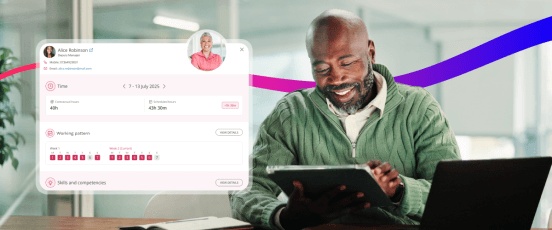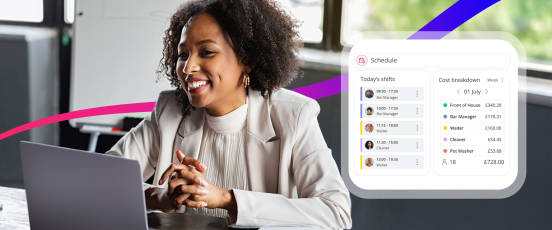Upskilling HR: best practices

In light of a changing business landscape, HR professionals are more and more keen to bring HR upskilling to the forefront. What is HR upskilling, and how can you enhance it in your business?
Understanding the importance of upskilling in HR
The role of HR is constantly evolving. In the past, HR was largely seen as an administrative role, processing paperwork and requests as they come in.
Unfortunately, a lot of organisations expect the HR department to pull this off without extra resources, and without taking the time to upskill.
HR teams are often great at building learning and development (L&D) programmes for the rest of the company, but that can often lead to their own development being neglected. Upskilling can have a huge impact on organisational performance, help you overcome skill gaps and even speed up daily processes.
Teams that aim for a skills-based strategy have more space to be innovative, with more opportunities for growth.
Key skills for HR professionals to develop
The most crucial set of skills going forward will be data-based. HR professionals often lack a strong understanding of data, and struggle to ensure all their decisions are data-driven. Taking time to develop analytical thinking, data analysis and workforce planning skills will help create a more durable team. They don’t need the level of expertise that a data analyst will have, but it can really enhance their HR.
Digital literacy in general is vital. Modern HR teams need to use technology to meet demand, and if much of their time is spent wrangling that tech, you’re not getting the most out of it.
Leadership skills and thinking strategically are also very important. HR departments are being seen as drivers for strategic change, so having people in the team with the skills to handle this is vital.
Strategies for effective HR upskilling
Firstly, you’ll want to assess the current skill gaps within your HR team. Alongside this, create a benchmark for skills. What do you already have? What do you want to see?
Once you’re armed with this data, you can start creating a customised upskilling programme. Some of this should be aimed at specific team members, helping them get specialised training. For example, an HR Business Partner needs more skills in stakeholder management, while an HR Analyst will need to grapple with data. Instead of trying to fit square pegs into round holes, take the time to build out an upskilling programme that suits each current employee.
Long term, you’ll want to build out a programme for new hires as well. But it will be easier to find new talent that suits your needs when your existing team are properly upskilled. Make sure you leverage online courses and other training resources for extra material, or consider looking into getting access to an LMS for your team.
Measuring the success of your upskilling efforts
It’s a lot easier to measure success when you’ve defined clear key performance indicators. This could be a reduction in certain HR metrics (such as time to hire, employee retention, or employee satisfaction scores). It could also be measured with improved productivity, or project completion rates within your HR team.
One of the best ways to acquire this data is by collecting feedback from your HR team. Surveys and check-ins will give you plenty of opportunity to get a sense of how things are going. That also means you can adjust and improve your upskilling strategy over time. Don’t see it as a one-and-done thing that never needs to be adjusted again. Instead, see upskilling as an ongoing goal.
If you’d like to learn more about how to improve your upskilling strategy, take our latest quiz. It will guide you through the common L&D pitfalls and help you build a strategy that works for your needs.



